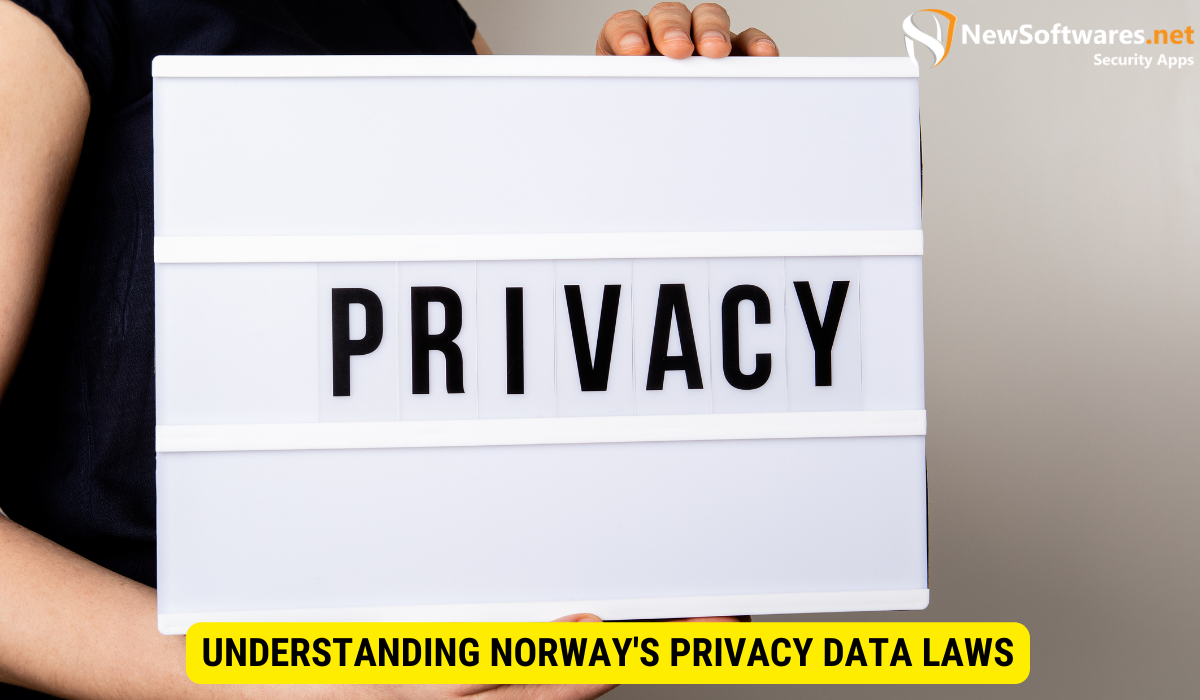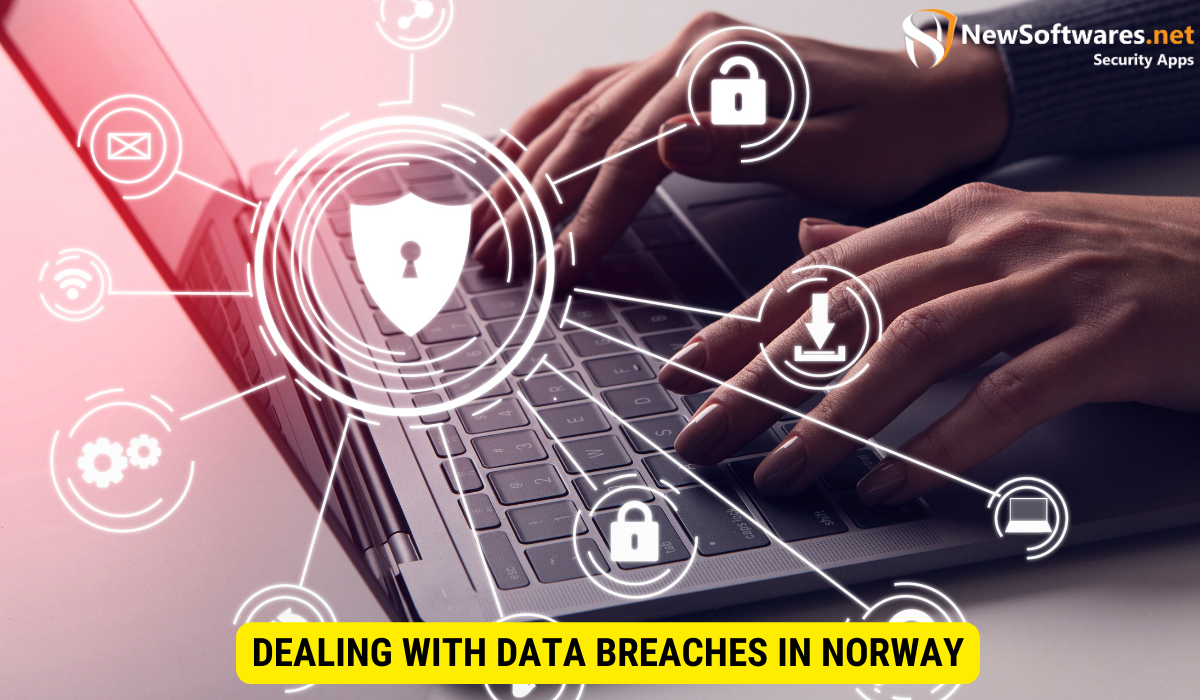To navigate privacy data laws in Norway, businesses and organizations must understand and comply with the Data Protection Act, including the principles of lawful processing of personal data, and uphold the rights of data subjects as outlined in the Act. Strategies include developing data protection policies, ensuring transparency, and being prepared to manage data breaches effectively.
In today’s interconnected world, privacy data laws play a crucial role in protecting individuals and their personal information. Norway, in particular, has stringent privacy data laws that aim to safeguard the rights of its citizens. Understanding and complying with these laws is vital for businesses and organizations operating in Norway. Together, we will explore the fundamentals of Norway’s privacy data laws, the legal framework for data processing, strategies for compliance, navigating international data transfers, and dealing with data breaches.
Understanding Norway’s Privacy Data Laws

Norway’s privacy data laws are primarily governed by the Data Protection Act. This legislation sets out the basic principles and requirements for the processing of personal data in the country. It establishes the rights and responsibilities of both data controllers and data subjects.
Norway takes privacy and data protection seriously, recognizing the importance of safeguarding individuals’ personal information. The Data Protection Act serves as a comprehensive framework that ensures the fair and lawful processing of personal data while respecting individuals’ rights to privacy.
The Data Protection Act in Norway focuses on the protection of individuals’ privacy and personal data. It outlines the legal grounds for processing personal data, definitions of key terms, and the obligations of data controllers and processors. Compliance with this act is essential for any organization processing personal data in Norway.
The Basics of Norway’s Data Protection Act
The Data Protection Act provides a clear and robust foundation for privacy and data protection in Norway. It sets out the rights and obligations of both data controllers and data subjects, ensuring that personal data is processed lawfully, fairly, and transparently.
Under the Data Protection Act, data controllers are responsible for determining the purposes and means of processing personal data. They must ensure that individuals are informed about the processing of their data and have the right to access, rectify, and erase their personal information.
Data subjects, on the other hand, have the right to know how their data is being processed and to exercise control over their personal information. They can request access to their data, request corrections if necessary, and even withdraw their consent for processing.
Key Principles of Norway’s Privacy Laws
Norway’s privacy laws are centered around several key principles that form the foundation of data protection in the country. These principles are designed to ensure that personal data is processed in a fair, secure, and responsible manner.
Transparency is a fundamental principle of Norway’s privacy laws. Organizations must be open and transparent about how they collect, use, and share personal data. They must provide individuals with clear and easily understandable information about their data processing practices.
Fairness is another key principle that governs privacy laws in Norway. Personal data must be processed in a way that is fair and does not cause harm to individuals. Organizations must have legitimate reasons for processing personal data and must not use it in a way that is unexpected or detrimental to individuals’ rights and interests.
Purpose limitation is also a crucial principle in Norway’s privacy laws. Organizations must only collect and process personal data for specific and legitimate purposes. They cannot use the data for purposes that are incompatible with the original purpose of collection, ensuring that individuals’ data is not misused or abused.
Data minimization is another important principle that emphasizes the need to collect and process only the minimum amount of personal data necessary for the intended purpose. This principle helps reduce the risk of unauthorized access, loss, or misuse of personal information.
Accuracy is a key principle that ensures personal data is kept up to date and accurate. Organizations must take reasonable steps to ensure that the data they hold is correct and relevant. Individuals have the right to request corrections if they believe their data is inaccurate or incomplete.
Storage limitation is also a principle that governs how long personal data can be retained. Organizations must not keep personal data for longer than necessary and must have clear policies and procedures in place for securely disposing of data when it is no longer needed.
Integrity and confidentiality are essential principles that require organizations to implement appropriate security measures to protect personal data from unauthorized access, disclosure, or loss. This includes measures such as encryption, access controls, and regular security assessments.
By understanding and adhering to these principles, organizations can ensure compliance with Norway’s privacy data laws and protect individuals’ rights to privacy and data protection.
Legal Framework for Data Processing in Norway
When processing personal data in Norway, organizations must ensure that they meet certain conditions under the Data Protection Act. These conditions include having a lawful basis for processing, obtaining consent when necessary, and ensuring that the processing is necessary and proportionate to the purpose.
Conditions for Lawful Processing of Personal Data
Under the Data Protection Act, organizations can lawfully process personal data if they have obtained the data subject’s consent, if it is necessary for the performance of a contract, if it is required by law, or if it is necessary for the organization’s legitimate interests. It is essential to identify the appropriate legal basis before processing personal data.
Rights of Data Subjects in Norway
The Data Protection Act also grants certain rights to individuals whose personal data is being processed. These rights include the right to access their data, the right to rectification, the right to erasure, the right to restrict processing, and the right to object to processing. Organizations must ensure that they respect and uphold these rights.
Strategies for Complying with Norway’s Privacy Laws
Complying with Norway’s privacy laws can be a complex task. However, there are several strategies that organizations can adopt to ensure compliance and protect personal data.
Implementing a Data Protection Policy
One effective strategy is to develop and implement a comprehensive data protection policy. This policy should outline the organization’s commitment to protecting personal data, identify key personnel responsible for data protection, and establish guidelines for data handling, storage, and security. Regular training and awareness programs should also be conducted to ensure that employees understand their responsibilities.
Ensuring Transparency in Data Processing
Transparency is a vital aspect of privacy laws. Organizations must provide individuals with clear and concise information about how their personal data will be processed. This includes informing them about the purposes of processing, the types of data being collected, and whether the data will be shared with third parties. Clear and easily accessible privacy notices should be provided to individuals.
Navigating International Data Transfers
In today’s global economy, organizations often need to transfer personal data across borders. However, when transferring personal data outside of Norway, organizations must take additional precautions to ensure compliance with privacy data laws.
Understanding the GDPR’s Impact on Norway’s Data Laws
Norway is not a member of the European Union but is part of the European Economic Area (EEA). Therefore, the General Data Protection Regulation (GDPR) also applies in Norway. Organizations must understand the GDPR’s requirements, especially regarding international data transfers, to ensure compliance.
Safeguarding Data in Cross-Border Transfers
When transferring personal data outside of Norway, organizations must apply appropriate safeguards to protect the data. These safeguards can include the use of standard contractual clauses, binding corporate rules, or obtaining the individuals’ explicit consent. Conducting a thorough assessment of the data recipient’s data protection practices is also essential.
Dealing with Data Breaches in Norway

Data breaches can have severe implications for organizations and individuals alike. In the event of a data breach, organizations operating in Norway must take immediate action to mitigate the impact and comply with reporting obligations.
Reporting Obligations After a Data Breach
Under Norway’s privacy data laws, organizations are required to report data breaches to the Norwegian Data Protection Authority without undue delay. The report should provide details of the breach, the potential consequences for individuals, and the measures taken to address the breach.
Mitigating the Impact of Data Breaches
To minimize the impact of a data breach, organizations should have robust incident response plans in place. These plans should outline the steps to be taken in the event of a data breach, including notifying affected individuals, addressing vulnerabilities, and implementing measures to prevent future incidents.
Key Takeaways
- Complying with Norway’s privacy data laws is essential for businesses operating in the country.
- Organizations must understand the fundamentals of Norway’s Data Protection Act and the key principles of privacy laws.
- Ensuring lawful processing of personal data and respecting individuals’ rights are crucial for compliance.
- Implementing a data protection policy and ensuring transparency in data processing are effective strategies for compliance.
- Navigating international data transfers requires organizations to understand the GDPR’s impact and implement appropriate safeguards.
- Dealing with data breaches requires organizations to promptly report incidents and take measures to mitigate the impact.
FAQs
What are the key principles of Norway’s privacy laws?
The key principles of Norway’s privacy laws include transparency, fairness, purpose limitation, data minimization, accuracy, storage limitation, integrity, and confidentiality.
Are organizations outside of Norway subject to the country’s privacy data laws?
If an organization processes personal data of individuals residing in Norway, regardless of its location, it must comply with Norway’s privacy data laws.
How can organizations ensure compliance with Norway’s privacy laws?
Organizations can ensure compliance by implementing a data protection policy, ensuring transparency in data processing, identifying lawful bases for processing, and respecting individuals’ rights.
What should organizations do in the event of a data breach in Norway?
In the event of a data breach, organizations should promptly report the incident to the Norwegian Data Protection Authority and take necessary measures to address the breach and mitigate its impact.
How does the GDPR impact Norway’s privacy laws?
Norway is part of the European Economic Area (EEA), and therefore, the GDPR applies in Norway. Organizations operating in Norway must understand and comply with the GDPR’s requirements, especially in relation to international data transfers.
Conclusion
Navigating Norway’s privacy data laws effectively requires a comprehensive understanding of the Data Protection Act, adherence to GDPR guidelines, especially for international data transfers, and a proactive approach to data protection policies and breach management.
